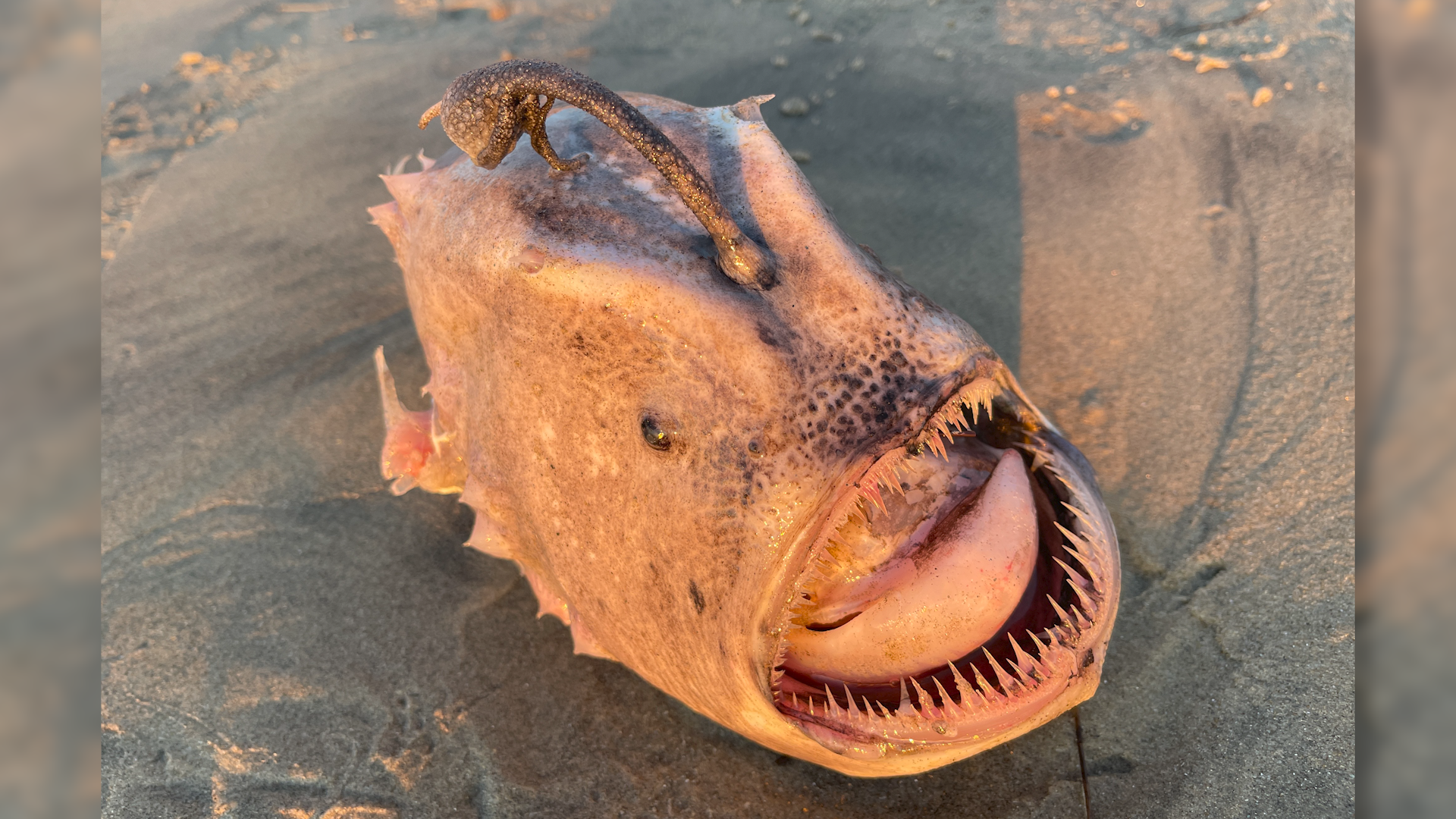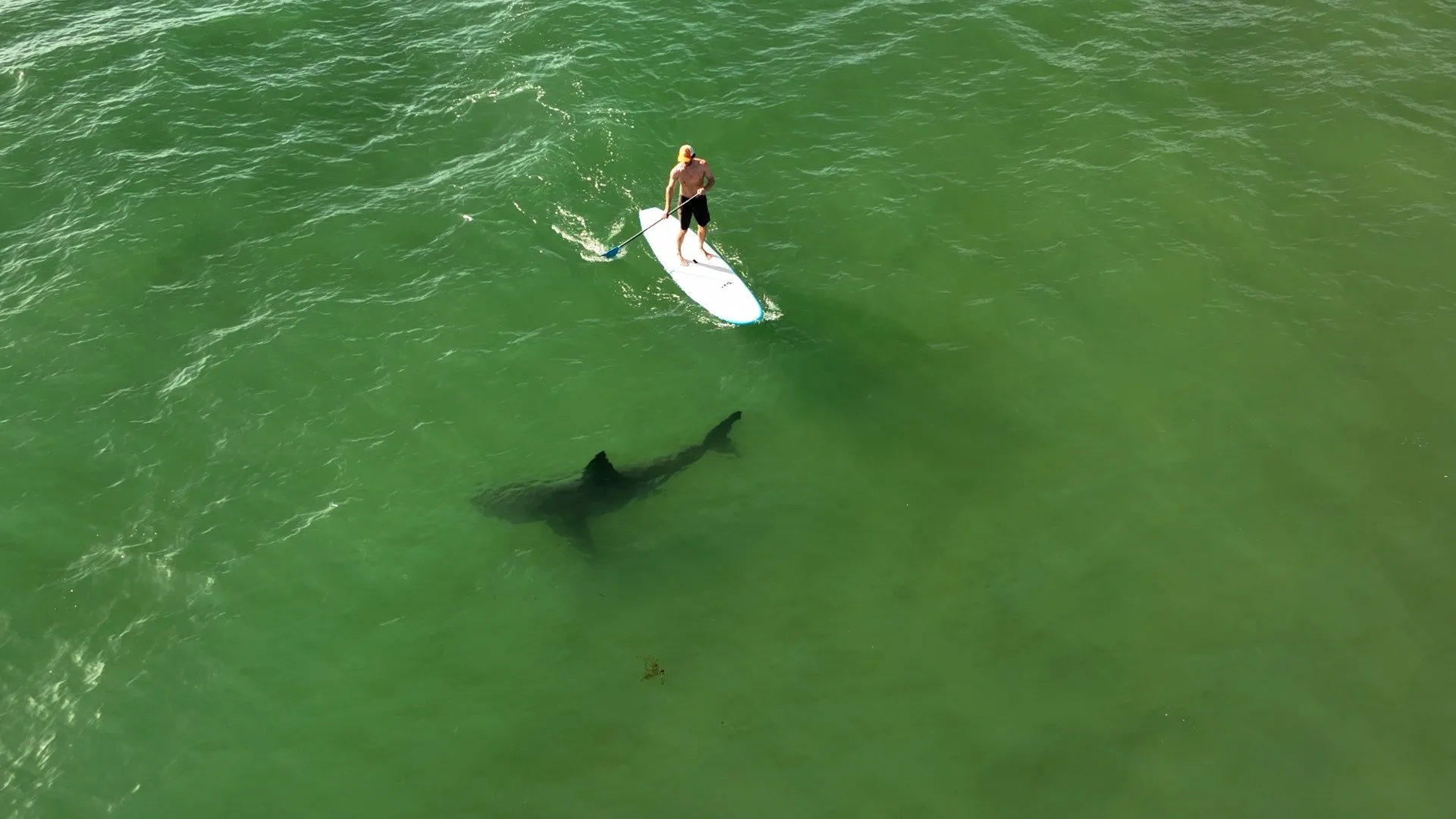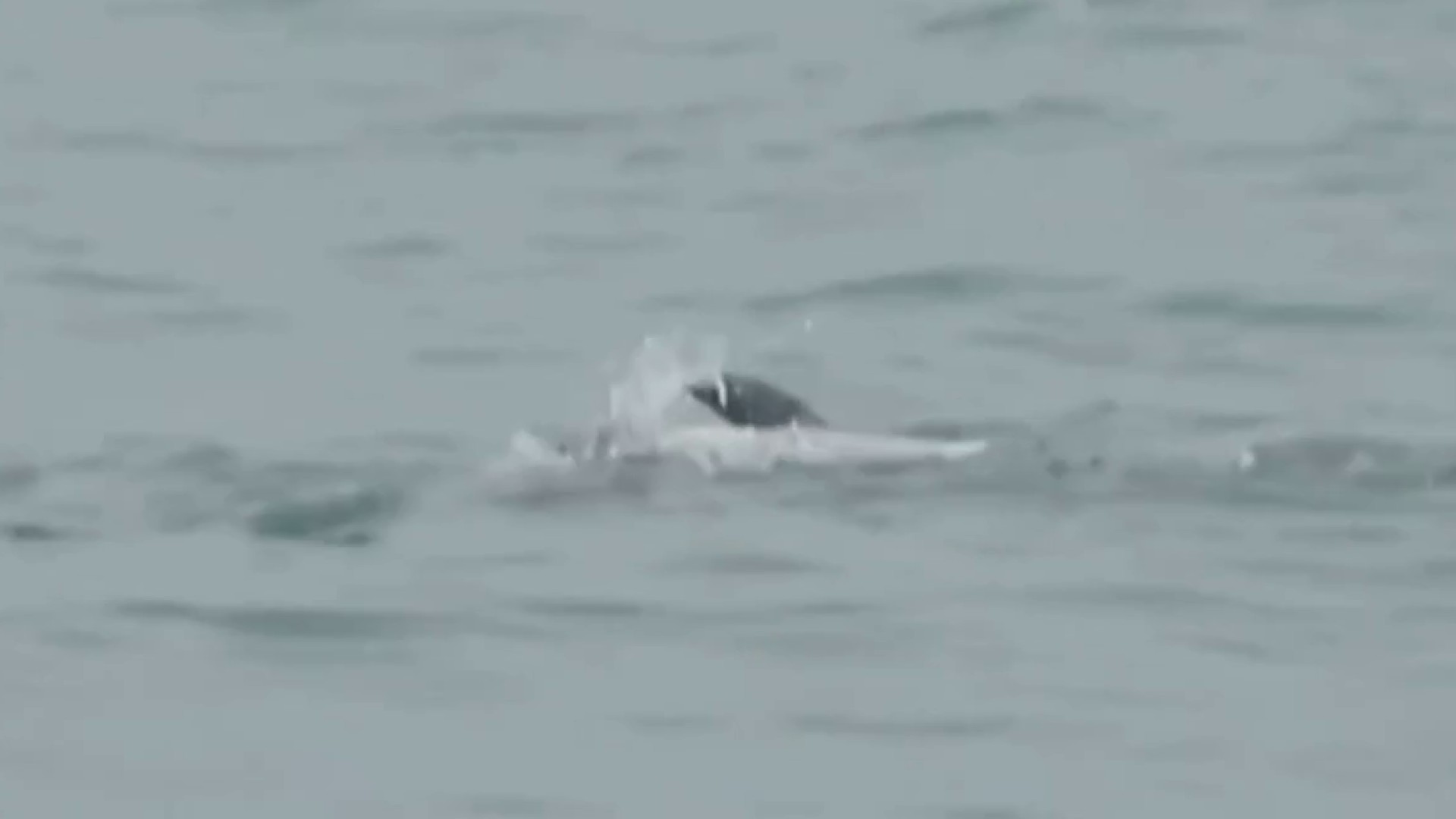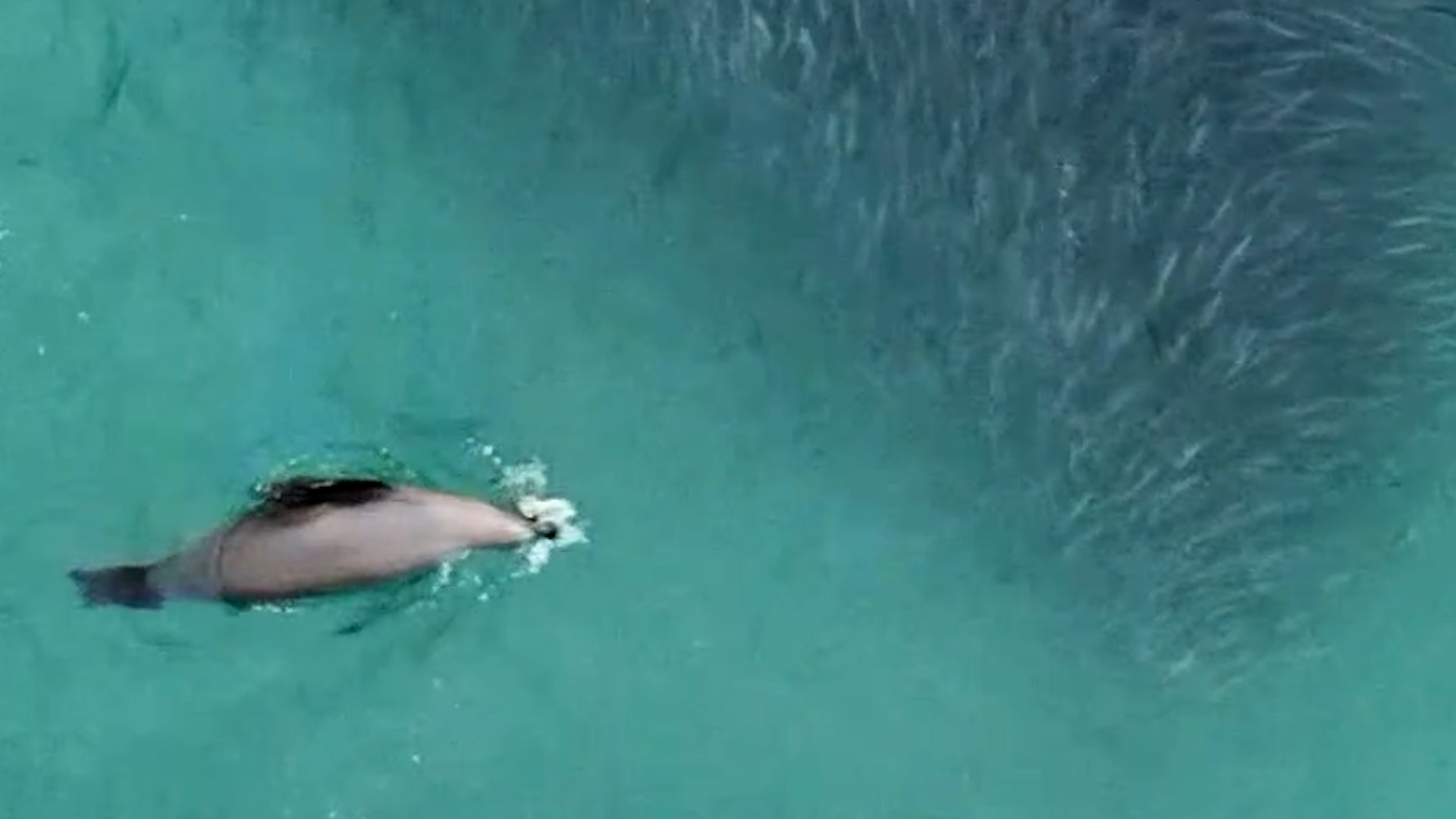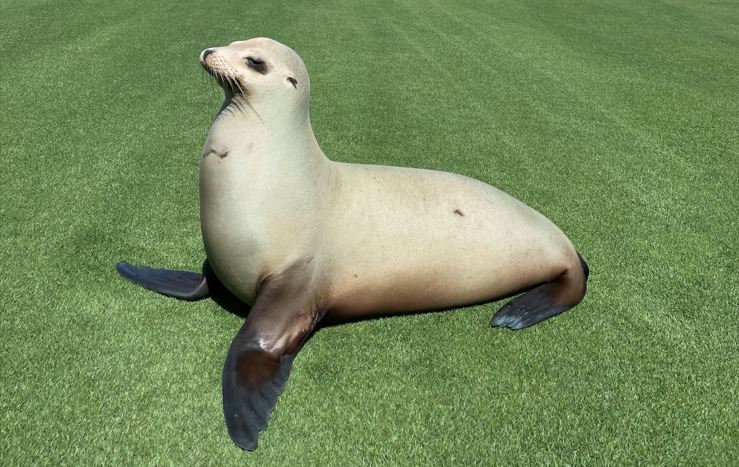A bloom of toxic algae across the Southern California Coast may be responsible for the deaths and illness of hundreds of sea lions and dolphins.
A SeaWorld San Diego veterinarian, Kelsey Herrick, told NBC 7 on Wednesday that the algae is suspected in six cases in San Diego, with the vast majority of cases occurring farther north off Santa Barbara and Ventura counties.
"They're seeing, like, a little bit more in the LA counties, and then we're seeing slightly less," Herrick said. "We have picked up around six animals so far that we are very suspicious of acute demoic acid intoxication. Tests take a little bit of time to turn around, but the symptoms are very consistent."
Herrick said the local cases are mostly sea lions and mostly pregnant moms that are presenting.
Get top local stories in San Diego delivered to you every morning. Sign up for NBC San Diego's News Headlines newsletter.
"The toxin likes to go toward water — it's a water-soluble toxin, and so it concentrates in fluids like urine or amniotic fluid," Herrick said. "And so a lot of times we see that the pregnant lions are severely affected because they have so much fluid in their bodies. So, the toxin accumulates in that fluid and causes them to be really symptomatic."
The Channel Islands Marine and Wildlife Institute received more than 1,000 reports of marine mammals that were sick or dead from June 8-14.
"We are managing more than 200 reports of marine mammals in distress each day," said Ruth Dover, co-founder and managing director of the Institute. "We are doing the best we can to keep up with the intense pace. Please continue to report all sick and injured marine mammals as we are getting to as many animals as we can, as quickly as we can, each day."
More San Diego stories from the coast
The algae Pseudo-nitzschia produces the neurotoxin domoic acid that, when ingested by the wildlife can be fatal. Domoic acid is usually consumed by marine mammals through prey that may contain high levels of the algae like fish.
According to the National Oceanic Atmospheric Administration (NOAA), domoic acid is one the largest threats to marine mammals. Mammals who consume it are likely to suffer from seizures and brain damage. Many of the dolphins that are deceased were found stranded on the beach shore, which can be a sign of disorientation or stress in the animal.
Officials from the NOAA CoastWatch show a bloom of domoic acid from Orange County to San Luis Obispo. There are particularly high concentrations of the algae near Santa Barbara and Ventura counties.
Domoic acid is not uncommon in certain areas of the California coast, however, and, under certain ocean, conditions can spread more rapidly. Last year the spread of domoic acid was mostly affecting the sea lion population closer to the shore. With more sick dolphins being reported, this may show that there are high concentrations of the algae offshore as well.
Samples of the deceased animals have been collected throughout the process to confirm the presence of the neurotoxin. These samples can help scientists understand patterns in the spreading of the toxin as well as any other issues that may play a role.
San Diego seals and sea lions
How can you tell if a marine mammal has been exposed to domoic acid?
"So, the symptoms that we see — that we are usually picking animals up for — are neurological symptoms," Herric said. "So we're seeing abnormal behavior. Sometimes it can be as simple as the sea lion is on the road. What is the sea lion doing on the road? That's not normal behavior. It can end up in weird places, like private properties or just kind of other abnormal locations for a sea lion. Something as simple as that to something as severe as, like, grand mall seizures."
It is recommended that people and their pets stay clear of the stranded marine wildlife, as it can be harmful to other animals. The neurotoxin is only harmful to humans if consumed through contaminated food, causing amnesic shellfish poisoning.
And if you do come across an animal you're concerned about?
"Call our rescue hotline ... and our rescue team will go out and assess that animal," Herrick said.
SeaWorld is on-call 365/24/7 at 800-541-SEAL (7325) and SWC.Rescue@seaworld.com — Ed.

